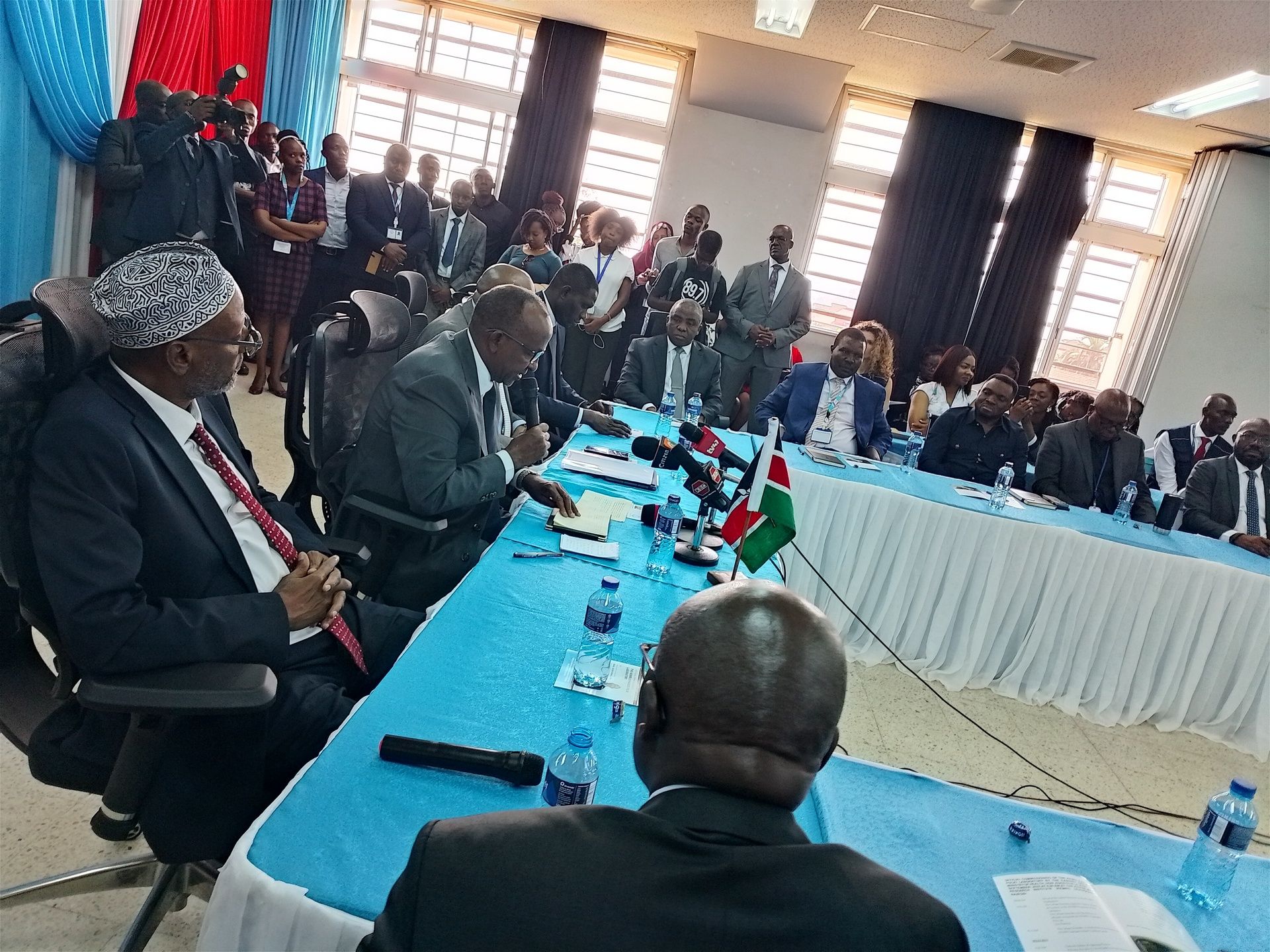- The 254 Report
- Posts
- Kenya Medical Research Institute (KEMRI) Inaugurates Expanded Polio Laboratory, Cementing Kenya’s Role in Regional Genomic Surveillance
Kenya Medical Research Institute (KEMRI) Inaugurates Expanded Polio Laboratory, Cementing Kenya’s Role in Regional Genomic Surveillance

The Cabinet Secretary for Defence, Hon. Aden Bare Duale, today presided over the official inauguration of the expanded and modernized Polio Laboratory at the Kenya Medical Research Institute (KEMRI). The event, held at KEMRI headquarters, marked a historic milestone in strengthening Kenya’s public health surveillance and genomic sequencing capacity, not only for polio but for other epidemic-prone diseases.
In his keynote remarks, CS Duale hailed the facility as “a beacon of hope, a symbol of resilience, and a testament to Kenya’s commitment to protecting the health of our people while enhancing regional and global health security.”
For decades, the KEMRI Polio Laboratory has been Kenya’s national reference lab, supporting the Ministry of Health in robust surveillance, advanced diagnostics of acute flaccid paralysis and environmental samples, and virus isolation and molecular characterization. Beyond Kenya, its mandate extends to the Horn of Africa and Comoros, ensuring regional vigilance against polio.
Until recently, genomic sequencing of polio samples was outsourced abroad—most often to South Africa or the Centers for Disease Control and Prevention (CDC) in Atlanta leading to long delays of up to 40 days. With the commissioning of the expanded laboratory, Kenya now possesses full genomic sequencing capability, drastically reducing turnaround times to less than two weeks, thereby accelerating outbreak response and outbreak verification.
“This expanded facility puts us on the brink of full international accreditation. It will reduce reliance on external laboratories, lower costs, and position Kenya as a continental leader in genomic surveillance. More importantly, it builds resilience and enhances preparedness for future epidemics and pandemics,” said CS Duale.
The CS emphasized that the modernization aligns with the government’s Bottom-Up Economic Transformation Agenda (BETA), particularly in expanding universal health coverage (UHC) and strengthening grassroots disease surveillance. He underscored that the laboratory would support Kenya’s long-term ambitions to establish itself as a continental health sciences hub, while serving as a multi-pathogen genomic platform capable of detecting and responding to other threats such as measles, rubella, monkeypox, and Ebola.
Acknowledging the Cabinet’s declaration of KEMRI as an institution of strategic importance, Duale revealed that the decision was achieved after sustained advocacy:
“I am not a doctor, but I read the memo, I understood it, and it took me only ten minutes to convince the Cabinet, chaired by the President, to agree with me. The only thing left is for the Ministry of Education to give KEMRI its charter before the end of October.”
The CS concluded by thanking KEMRI leadership, development partners, and funders including the World Health Organization (WHO) and the Bill & Melinda Gates Foundation for their steadfast support, adding:
“This commissioning is not just an event it is a reaffirmation of our shared commitment to finish the fight against polio and to prepare for tomorrow’s health threats.”
WHO Commends Kenya’s Leadership
Speaking at the ceremony, Dr. Abdourahmane Diallo, WHO Representative to Kenya, described the new facility as a defining moment in Kenya’s public health journey.
“Being able to do genomic sequencing in Kenya and reducing turnaround time from over 40 days to under two weeks is a great achievement. This capacity will not only serve Kenya but also countries across the sub-region, including Somalia, Ethiopia, Uganda, Djibouti, Eritrea, and Yemen. It is a testament to the leadership of the Ministry of Health, the Government of Kenya, KEMRI, and the strength of global partnerships.”
Dr. Diallo further emphasized that the lab is more than a polio-only facility, noting its broader application in surveillance of other pathogens of epidemic and pandemic potential. He highlighted WHO’s long-standing partnership with KEMRI, citing substantial investments in equipment, capacity building, and technical support over the years.
He also extended gratitude to the Bill & Melinda Gates Foundation, the Global Polio Laboratory Network, eHealth Africa, and the contractors for their roles in making the project a success.
“This collaboration shows what can be achieved when global expertise aligns with local dedication. Beyond the building and equipment, the human resource capacity to run the lab is perhaps the most important investment,” Dr. Diallo noted.
He concluded by praising KEMRI’s attention to detail and the seamless organization of the handover ceremony, reflecting the seriousness and professionalism with which the institution approaches its mandate.
A Step Toward Global Health Security
The expanded KEMRI Polio Laboratory now stands as a cornerstone in Kenya’s compliance with the International Health Regulations (IHR), advancing regional and global health security. By integrating advanced genomic sequencing with robust surveillance networks, the facility strengthens early warning systems, epidemic preparedness, and pandemic response capabilities across East Africa.
The commissioning reaffirmed Kenya’s leadership in science and public health, while underscoring the value of international partnerships in tackling shared health challenges.
Reply